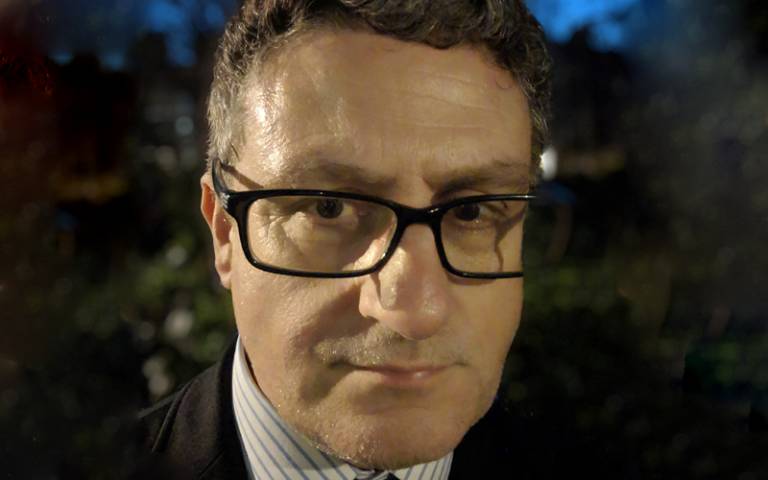Opinion: Now is the moment for Berlin to show Russia some backbone
19 January 2021
Germany’s praiseworthy decision to take in Russian opposition leader Alexei Navalny after he was poisoned means it has a moral obligation to do right by him, argues Honorary Professor Mark Galeotti (UCL School of Slavonic & East European Studies).

Alexei Navalny's immediate arrest and arraignment in a kangaroo court poses an awkward challenge to Berlin.
No one is questioning the Germans willingness to be nice: allowing an NGO to fly Navalny from Omsk in Siberia to Berlin’s Charité hospital in order to get him out of the hands of the regime that had poisoned him with a Novichok nerve agent was undoubtedly a humanitarian act.
But the question now is whether they can be nasty, too.
After all, Germany has an unimpressive track record. In August 2019, a Chechen by the name of Zelimkhan Khangoshvili, who had fought against the Russians in both Chechnya and Georgia, was murdered in Berlin. The killer had a passport and a French-issued Schengen visa in the name of ‘Vadim Sokolov’ - but turned out to be a Russian gangster called Vadim Krasikov, likely recruited by Russia’s carnivorous Federal Security Service.
The German federal prosecutor said Krasikov murdered Khangoshvili on the Kremlin’s orders. All Berlin did, though, was to expel two diplomats allegedly working as intelligence officers, and that not on the grounds that Moscow had carried out the assassination, just that it had not cooperated enough on the investigation.
This half-hearted response – and the lack of any efforts to mobilise an international coalition to punish Russia the way London did after the Salisbury poisonings – did not go unnoticed in Moscow.
Like it or not, Berlin’s praiseworthy decision to take in Navalny means that it has a certain moral responsibility to him now.
Although there is a danger in reading too much into any one statement, at a time when other European leaders were calling Navalny’s arrest “appalling” (in Dominic Raab’s words) and demanding his immediate release, the first response from German foreign minister Heiko Maas was simply that it was “incomprehensible.”
Germany is not just the heavyweight of the continent, it is Russia’s second biggest trading partner after China. However much Moscow may try to pretend otherwise, when Berlin speaks, it listens.
Of late, though, Berlin has largely seemed to be saying that it wants to avoid too much of a fuss. Its commitment to Russia’s new Nord Stream 2 gas pipeline – over the objections of the USA and several European countries – seems to symbolise its willingness to keep business and morality as far apart as possible.
With Armin Laschet having just been selected to replace Angela Merkel as leader of the governing Christian Democratic Union, this is a pivotal moment. He is dovish towards both Russia and China, and publicly questioned whether Moscow was behind the Salisbury poisonings.
Doing something about Nord Stream 2 would be difficult, as it means going against powerful business interests. America’s clumsy efforts to bully Berlin over the pipeline also made the Germans dig in their heels. However, there is still much more that Berlin could do, from more sanctions on Russians close to Putin, to making strong diplomatic statements that go beyond words. There could, after all, have been German diplomats escorting him on the plane, or asking to be allowing into that makeshift trial.
One way or another, if Berlin is to look serious here, it needs to move beyond business as usual.
This article was originally published in The Telegraph on 18 January 2021.
Links
- Original article in The Telegraph
- Honorary Professor Mark Galeotti’s academic profile
- UCL School of Slavonic and East European Studies (SSEES)
- UCL Faculty of Social & Historical Sciences
 Close
Close

